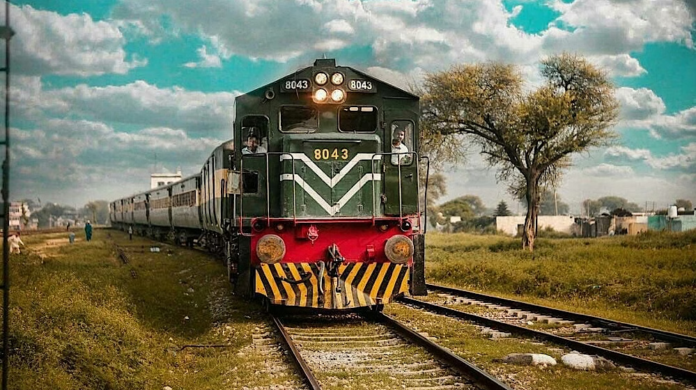Federal Minister for Railways Muhammad Hanif Abbasi on Thursday reaffirmed the government’s resolve to transform Pakistan Railways into a modern, efficient, and globally competitive service capable of driving regional trade and integration.
Speaking at the Regional Transport Ministers’ International Conference, Abbasi said that transport is not only about the movement of goods and people but also about creating opportunities, fostering economic growth, and building regional and global partnerships.
The minister said Pakistan Railways, one of South Asia’s oldest and most extensive networks, has embarked on a far-reaching modernization and digitization drive focused on efficiency, transparency, and better service delivery in both passenger and freight operations.
To achieve these goals, several passenger and freight trains are being outsourced to the private sector through public-private partnership (PPP) models, he noted.
Highlighting infrastructure priorities, Abbasi described Main Line-I (ML-I) as the “main artery” of Pakistan Railways, handling around 80 percent of passenger and 90 percent of freight operations. He emphasized that its upgradation is vital to expanding operational capacity and boosting regional connectivity.
He also underlined the significance of Main Line-II (Kotri–Attock) and the Uzbekistan–Afghanistan–Pakistan Railway Corridor (UAPRC), calling the latter a transformative project linking Pakistan’s seaports with landlocked Central Asian Republics. The corridor includes the construction of a 192-kilometre rail link from Kohat to Kharlachi, designed to strengthen north–south connectivity.
Abbasi said upgrading Main Line-III (Quetta–Taftan)—which connects Pakistan with Iran, Türkiye, and beyond through the Islamabad–Tehran–Istanbul (ITI) freight train, a flagship project under the Economic Cooperation Organization (ECO)—would facilitate mineral transport from Balochistan’s Chaghi region to Karachi ports.
Plans for Main Line-IV (ML-IV) are also in progress, aimed at linking Gwadar Port with the national railway network to reinforce the port’s development potential.
Referring to the Thar Coal Railway Project, Abbasi said it would allow the transport of coal from Thar to Karachi ports and connect the Thar coal mines with ML-I.
He further revealed plans for a new freight train service from Pakistan to Belarus via Iran, Turkmenistan, Uzbekistan, Kazakhstan, and Russia, as well as ongoing initiatives to expand connectivity with other Central Asian states.
Concluding his remarks, the minister said Pakistan’s railway system is being reimagined to deliver a future where connectivity drives development. “We remain fully committed to working with our regional partners to facilitate cross-border operations and realize our shared vision of a connected, developed, and peaceful region,” he stated.




